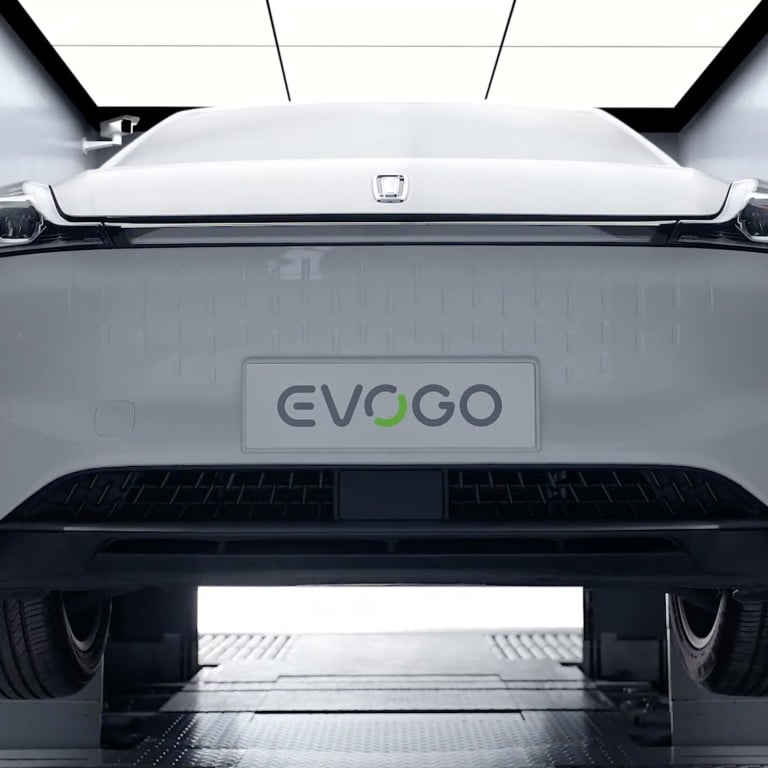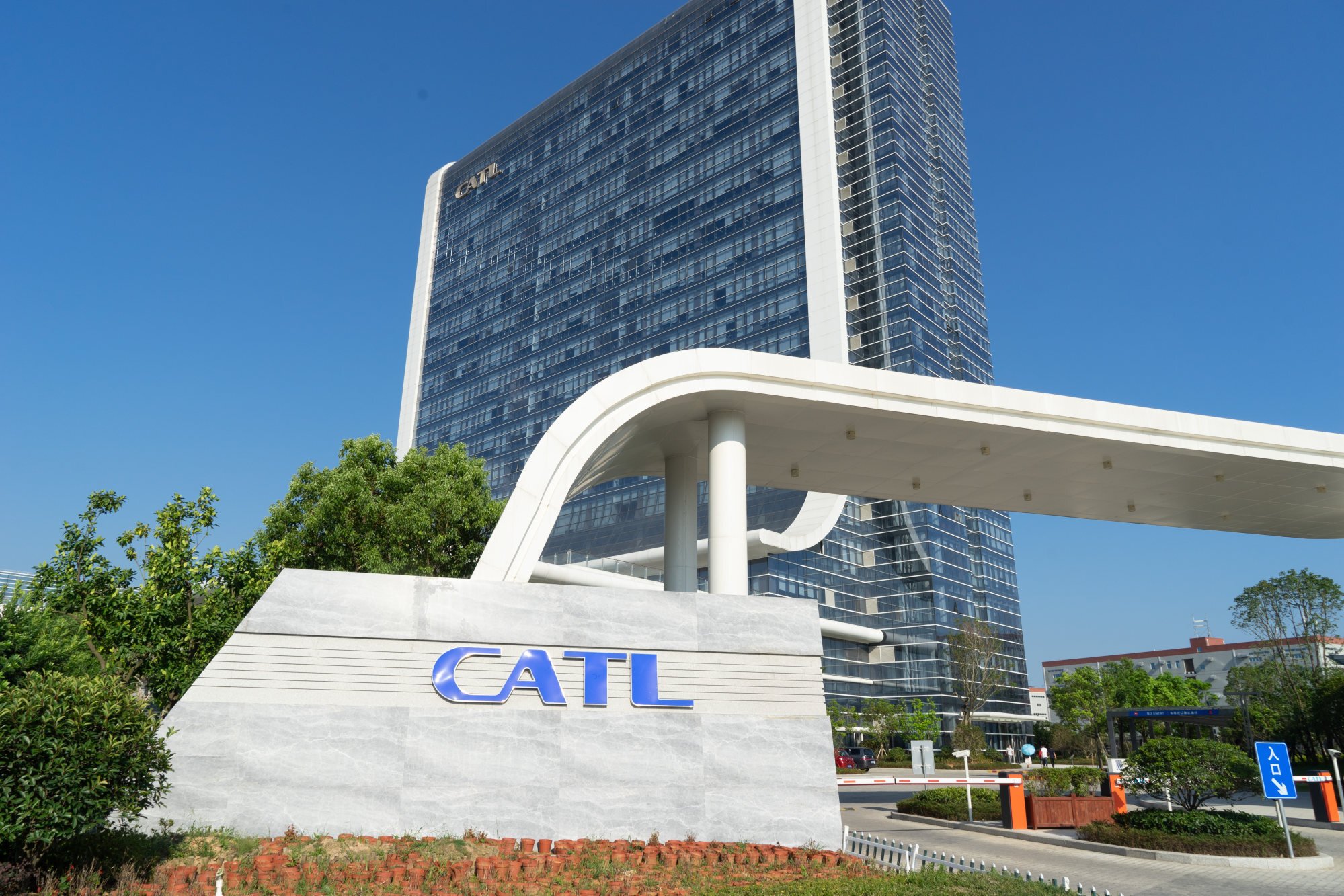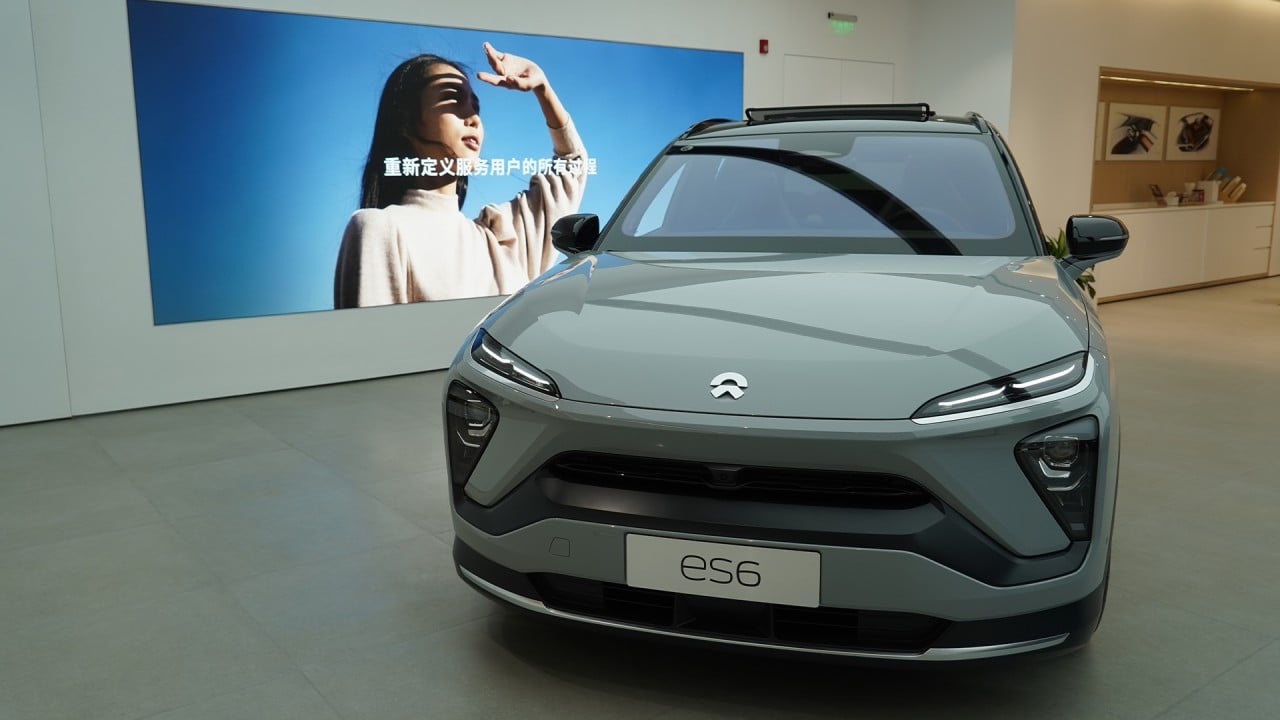
CATL, China’s largest EV battery maker, launches EVOGO battery-swapping service
- EVOGO, offered via a mobile app, will allow users to change their depleted car batteries at swap stations, CATL said
- The battery-swap service will be launched in 10 mainland cities initially
Contemporary Amperex Technology Co (CATL), China’s biggest producer of electric-car batteries, has launched a battery-swapping service called EVOGO to tap into the rapid growth of new energy vehicles on the mainland.
EVOGO’s services, offered via a mobile app, will allow users to change their depleted car batteries at swap stations, instead of waiting for it to recharge, CATL said during an online event to announce the launch on Tuesday.
“The company will launch the services in 10 cities in mainland China,” said Chen Weifeng, general manager of CATL subsidiary Contemporary Amperex Energy Service Technology, which focuses on mobile power solutions. However, he did not elaborate further.
Electric-car makers like NIO and battery makers like CATL are increasingly launching battery swap services in a bid to lower prices for EV buyers in China and ease driving range anxiety.

Sales of so-called new energy vehicles (NEVs) hit a record 2.99 million units in 2021, or 14.8 per cent of overall sales in China, the world’s largest car market, according to data compiled by the China Passenger Car Association.
Three in five new cars sold in China are likely to be powered by electricity instead of fossil fuel by 2030, according to UBS. The Chinese government, however, is eyeing a 20 per cent penetration rate by 2025.
CATL said that the Choco-SEB battery block, which will be made available for the swap service, has a driving range of 200km and can be fitted on 80 per cent of electric vehicles that are currently available on the market as well as those that will be released in the next three years.
“You can install one to three blocks in your car to meet different range requirements,” said Chen. “And with a small footprint equivalent to three parking spaces, a standard station can house up to 48 Choco-SEBs.”
A single battery block can be swapped in one minute, he added.
The battery swap model has broad growth prospects, CICC analysts Chen Xianfan and Deng Xue said in a research note last December.
“Despite the high initial construction costs, the battery swap model is supported by national policies, and we believe it has long-term development potential,” the analysts said.
Chinese EV maker NIO is the front runner in the battery swap business in China.
NIO, which had built more than 700 battery swap stations by the end of last year, plans to add at least another 3,700 by the end of 2025.


